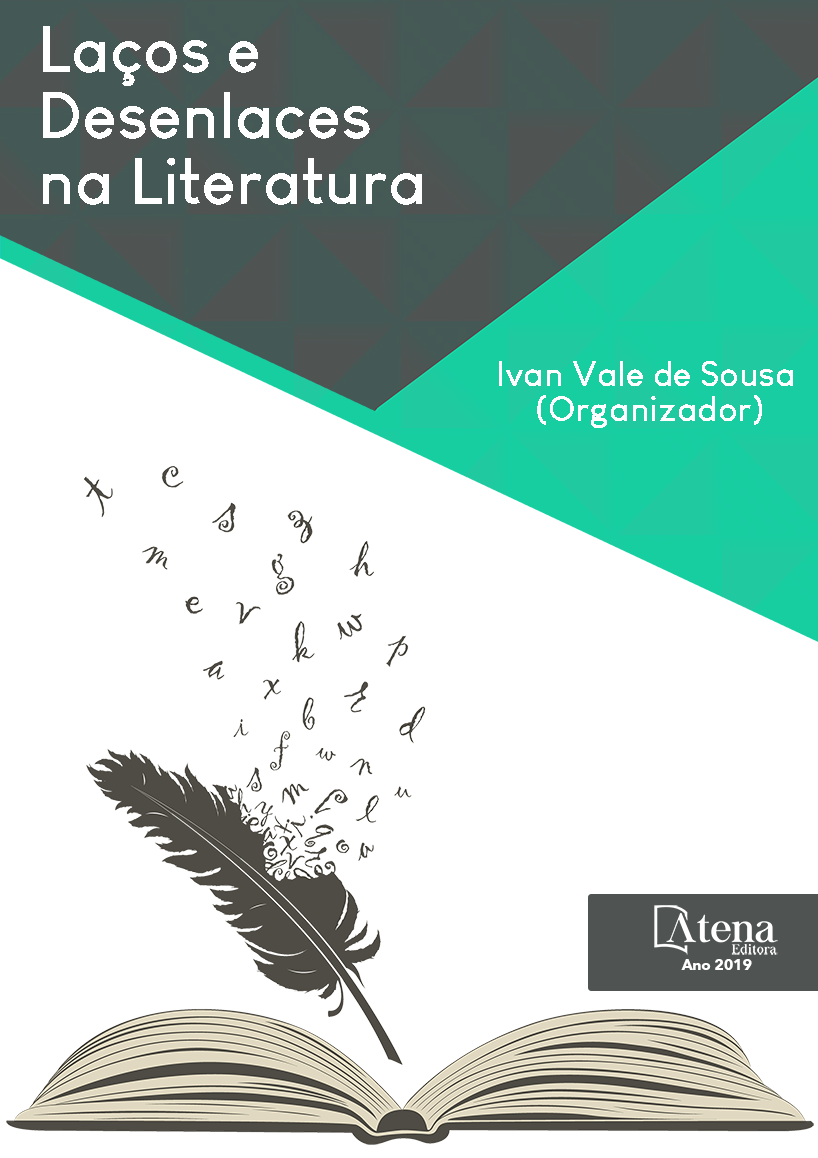
OS ERVAIS DE SELVA TRÁGICA: UMA VIA DE MÃO ÚNICA – DEGRADAÇÃO E MORTE
O propósito deste trabalho é
realizar uma abordagem da relação Literatura
e Vida Social em Selva Trágica (1959), que
traz como subtítulo “a gesta ervateira no
sulestematogrossense”, constituindo-se um
testemunho de época, a História dos ervateiros
do Mato Grosso e da fronteira Oeste do Brasil,
dessa forma a obra oferece interpretação
ficcional da possível História dos trabalhadores
da Companhia Matte Larangeira. A partir
de um eixo social, desvela-se a trama das
relações que subjugam o Homem. Sofrendo
pressões socioeconômicas de um sistema
capitalista, que escraviza e dá sustentação
à relação opressiva entre dominadores e
dominados, os protagonistas de Selva Trágica
vivenciam relações de oposição entre grupos e
experimentam situações trágicas, bem como a
degradação humana. Para o homem comum,
a constante preocupação com a morte tem
traços mórbidos. Assim, ele desviará a atenção
da morte, especialmente em seus aspectos
mais desagradáveis, sempre que o espectro
da morte se introduzir em sua consciência.
Nas atividades cotidianas, não há lugar para
reflexões sobre a transitoriedade da vida, porque
o dia-a-dia é repleto de trabalhos e ações que
pressupõem sempre o tempo futuro. Segundo
Heidegger (2002), a vida prática cotidiana
exige, pois, o “esquecimento” da morte e, para
tanto, o homem a “despersonalizou”, fez dela
um fenômeno puramente biológico ou social,
recusando-se a meditar sobre aquilo que é uma
experiência à qual todos os seres se submetem
individualmente.
OS ERVAIS DE SELVA TRÁGICA: UMA VIA DE MÃO ÚNICA – DEGRADAÇÃO E MORTE
-
DOI: 10.22533/at.ed.96219240721
-
Palavras-chave: Literatura social; Narrativa de tensão; Hernâni Donato; Selva Trágica
-
Keywords: Social literature; Narrative of tension; Hernâni Donato; Tragic Jungle
-
Abstract:
The purpose of this work is to carry
out an approach to the relationship between
Literature and Social Life in the Tragic Jungle
(1959), which has as subtitle “the gesta herbal
in southwestmatogrossense”, constituting
a testimony of the epoch, the History of the
herdsmen of Mato Grosso and the western border
of Brazil, in this way the work offers a fictional
interpretation of the possible History of the Matte
Larangeira Company employees. From a social
axis, the plot of the relationships that subjugate
the Man is unveiled. Suffering socioeconomic
pressures from a capitalist system that enslaves
and sustains the oppressive relationship
between dominators and dominated, the protagonists of Tragic Jungle experience
oppositional relations between groups and experience tragic situations as well as
human degradation. For the common man, the constant preoccupation with death has
morbid traits. Thus, he will divert attention from death, especially in its most unpleasant
aspects, whenever the spectre of death enters into his consciousness. In day-to-day
activities, there is no place for reflections on the transience of life, because everyday
life is filled with work and actions that always presuppose future time. According to
Heidegger (2002), daily practical life therefore requires the “forgetting” of death and, to
that end, man has “depersonalized” it, made it a purely biological or social phenomenon,
refusing to meditate on what is an experience to which all beings submit individually.
-
Número de páginas: 15
- JESUINO ARVELINO PINTO


